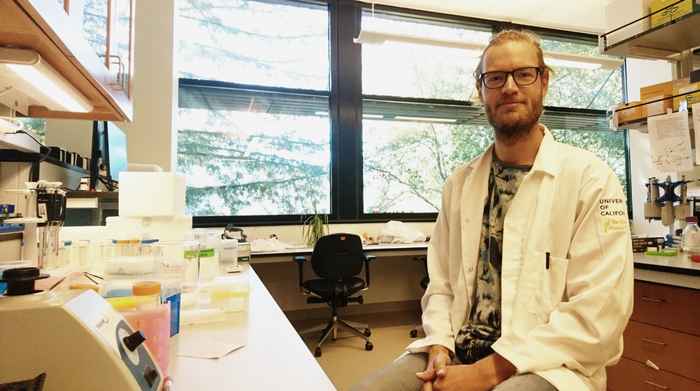Gerrald Lodewijk receives Rubicon grant from NWO
18 October 2021

For his postdoctoral work, Lodewijk will study molecular mechanisms of how different cell types are specified in the early embryo. The research will help in understanding the first weeks of human embryonic development, which seems unusually prone to errors, and it is unclear if this is due to currently unknown human-specific developmental mechanisms. To do this, Lodewijk will focus on establishing recent models of the first weeks of embryonic development and use live cell microscopy to track the formation of specific cell types over time. Previous studies suggest there are evolutionary differences in the gene regulatory networks in cell type specifications. By comparing (epi-)genomes between species, he will prepare a genome-wide list of DNA regions that may differentially regulate stem cell properties. This analysis is followed by a targeted CRISPR-Cas9 screen in stem cell models to assess the function of thousands of such DNA regions in parallel.
The Rubicon programme
The Rubicon programme, funded by the Dutch Research Council (NWO), allows postdoctoral researchers to gain experience at a top institute abroad. ‘The Rubicon fellowship will give me the time and resources to design and set up the proposed research plan in a relatively new lab. The synthetic biology field has made major advances in the past few years to model various aspects of embryonic development and self-organizing properties of cells, so I’m very excited to start my research along these topics at UCSC’ says Lodewijk.